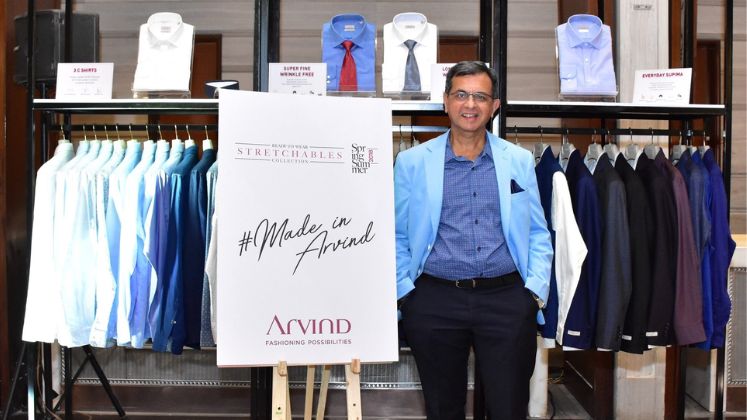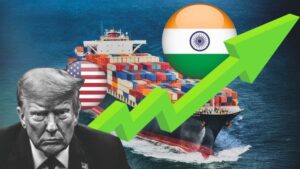
Arvind Ltd., a leading manufacturer of apparel and textiles, announced its Q4 and full-year results for 2024–2025 on Thursday. The company’s consolidated revenue of Rs. 2,221 crore (US $ 259 million) represented a 7 per cent increase over the Rs. 2,075 crore (US $ 242 million) of the same time the previous year.
At Rs. 275 crore (US $ 32.1 million) with a 12.4 per cent margin, the company’s earnings before interest, taxes, depreciation, and amortisation (EBITDA) increased by 10 per cent from Rs. 251 crore (US $ 29.3 million) the year before and reached its best level in 16 quarters.
With an EBITDA of Rs. 919 crore (US $ 107 million) and an 11 per cent margin, the textile giant’s full-year FY ’25 revenue was Rs. 8,329 crore (US $ 972 million), up 8 per cent from FY ’24’s revenue of Rs. 7,738 crore (US $ 903 million).
The establishment of a domestic tariff area (DTA) on carry-forwarded losses of certain of its subsidiaries resulted in a lower net tax provision, which was the reason for Arvind Ltd’s profit after tax (PAT), which was Rs. 151 crore (US $ 17.62 million) and grew by 52 per cent year over year (YoY). The company’s FY ’25 PAT stood at Rs. 353 crore (US $ 41.2 million).
Denim fabric, woven fabric, and the garmenting segment of Arvind Ltd. were some of the main development drivers. Denim fabric saw a 14 per cent increase in volume for Q4 (14.6 million meters) and an 8 per cent increase for FY ’25 (51.6 million meters). Woven cloth saw a 5 per cent increase in Q4 at 33.2 million meters, and for the entire year FY ’25, it reached 128 million meters. For the fourth quarter, the garmenting division’s total garment volume reached 9.5 million pieces, the highest level in 12 quarters. This segment recorded a 16 per cent increase to 37.2 million pieces during FY 25.
As it partially absorbs the impact of US tariff policies, the company also cautioned that its margins may be under pressure in the first two quarters of the current fiscal year.
Arvind stated that it will halt all non-essential and discretionary capital expenditures until tariffs are clarified and work to lower costs and boost volumes to ease the strain on profits. In addition, it stated that a fiscal year forecast would be released “at a later stage” because of “prevailing uncertainty” in the forecast.
Arvind’s vice chairman, Punit Lalbhai, stated on a call following the company’s earnings that “The demand situation is the most robust we have seen in recent memory,” adding that clients are discussing volume increases and pushing orders.






